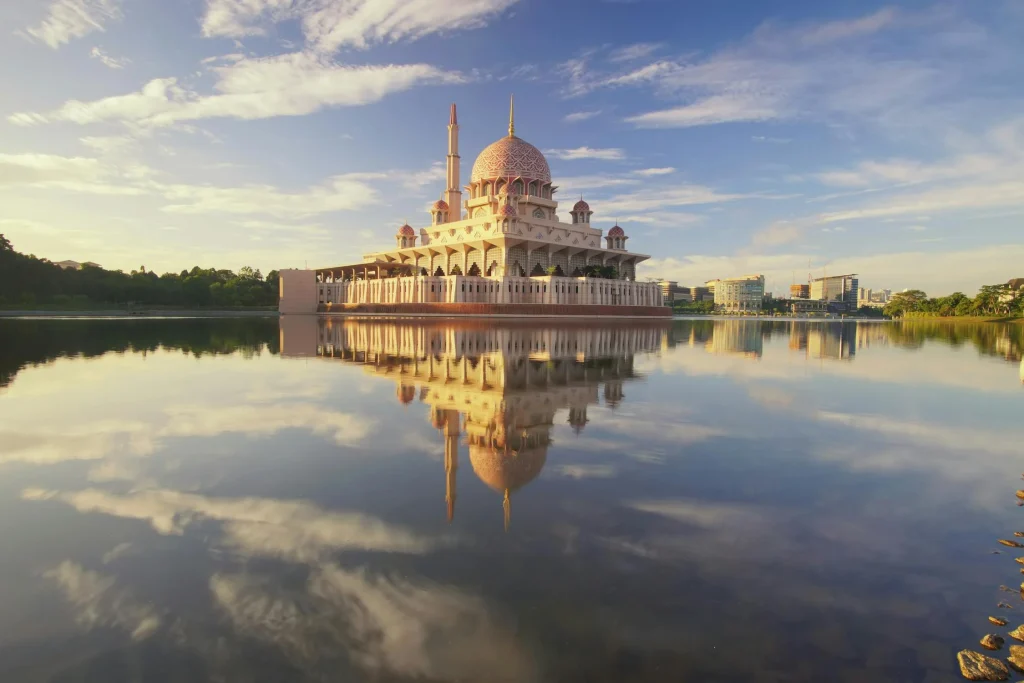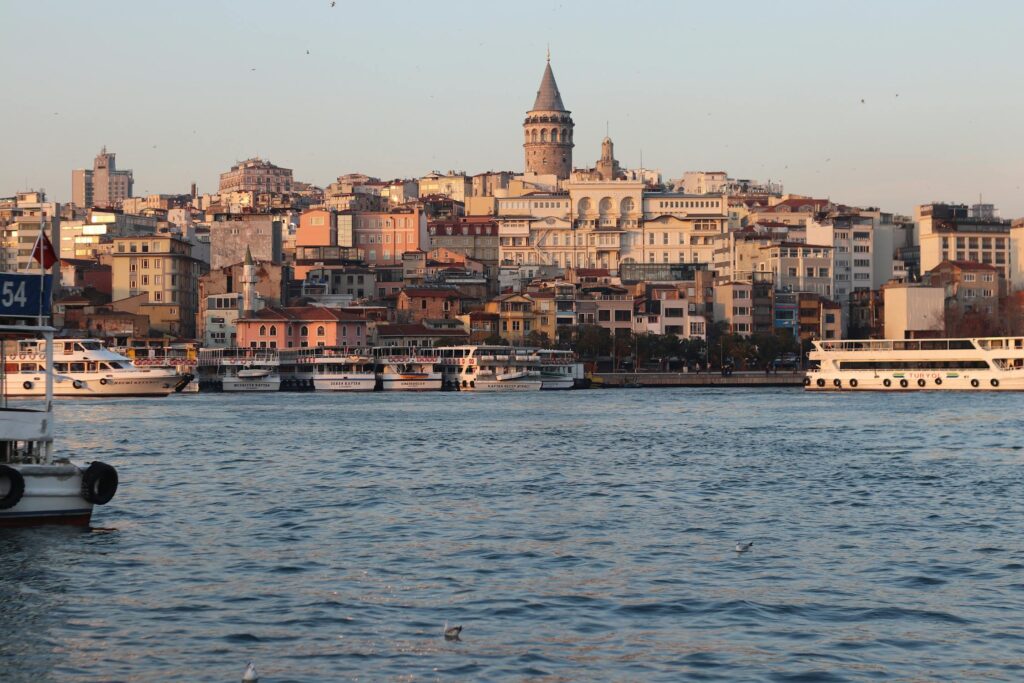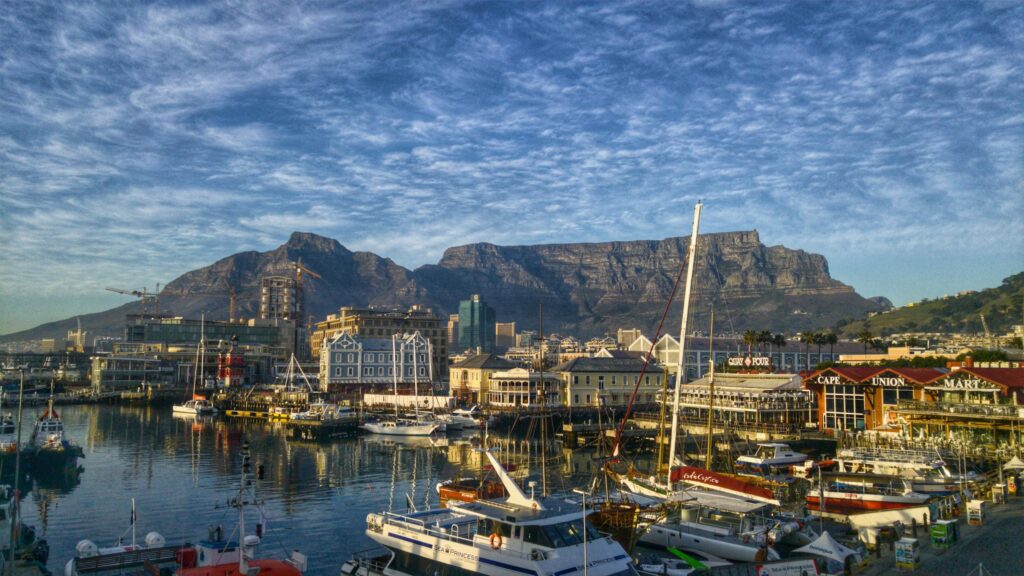The Rise of Halal Tourism: A New Frontier in Travel

By Mehdi El Merini / Arab America contributing writer.
In recent years, Halal tourism has emerged as one of the fastest-growing segments of the global travel industry. With Muslim travelers projected to spend over $300 billion on travel by 2026, according to CrescentRating, the demand for destinations catering to Islamic principles is reshaping the tourism landscape. This trend reflects the growing purchasing power of Muslim consumers and a burgeoning awareness among global hospitality providers of the importance of inclusivity.
Halal tourism goes beyond offering Halal food; it encompasses a holistic travel experience that aligns with Islamic values. Resorts, airlines, and destinations have started to tailor their services to meet these needs, providing prayer facilities, gender-segregated amenities, and alcohol-free environments. For Muslim travelers, these adjustments are not mere conveniences; they are essential aspects of a fulfilling vacation.
The Drivers Behind the Growth
Several factors have contributed to the rise of Halal tourism. The most significant is the growth of the global Muslim middle class, particularly in countries like Indonesia, Malaysia, and the Gulf states. This demographic, with increased disposable income and a desire to explore the world while adhering to Islamic principles, has created a lucrative market.
Another key driver is the digital revolution. Social media platforms have amplified the voices of Muslim travelers, who now share their experiences and preferences, urging the travel industry to evolve. Platforms like HalalBooking and Muslim-friendly travel blogs have become instrumental in connecting travelers with destinations that cater to their needs.
Moreover, global events and increased awareness of cultural sensitivities have prompted destinations to diversify their offerings. In Europe, for instance, the rise in Muslim tourism has coincided with efforts to attract visitors from the Middle East and Southeast Asia. Countries and resorts are recognizing that catering to Muslim travelers is not just about inclusivity—it’s good business.

Locations Leading the Way in Halal Tourism
One standout destination in Halal tourism is Turkey, a bridge between East and West with a deep Islamic heritage. Resorts like Angel’s Marmaris in the southwest of the country have pioneered the concept of Muslim-friendly vacations. This resort features segregated swimming pools, private beach areas for women, and an entirely alcohol-free environment, ensuring guests can relax without compromising their values.
Malaysia, with its multicultural society, has also positioned itself as a leader in Halal tourism. The nation’s tourism board actively promotes the country as a Muslim-friendly destination, highlighting attractions such as Kuala Lumpur’s Islamic Arts Museum and Langkawi’s luxurious resorts that offer Halal-certified meals and prayer facilities.
The Maldives, known for its pristine beaches and high-end resorts, has joined the trend by marketing itself to Middle Eastern tourists. Some resorts now provide private villas with pools, ensuring complete privacy for families, as well as Halal dining options and dedicated prayer rooms.
In Europe, Spain has tapped into its Andalusian heritage to attract Muslim travelers. Cities like Granada and Córdoba, steeped in Islamic history, have seen an influx of visitors exploring sites such as the Alhambra and the Great Mosque of Córdoba. Hotels in the region are increasingly offering Halal-certified meals and accommodating requests for prayer spaces.

What Sets Halal Tourism Apart?
Halal tourism distinguishes itself from mainstream travel by addressing specific religious and cultural needs. Here are a few features that make these destinations unique:
- Halal-Certified Cuisine: While most hotels worldwide cater to dietary preferences, Halal tourism ensures the availability of Halal-certified food, free from pork and alcohol. Many establishments go the extra mile to provide diverse culinary experiences, from Middle Eastern dishes to local cuisines prepared in accordance with Islamic dietary laws.
- Prayer Facilities: For practicing Muslims, finding a place to pray can be challenging while traveling. Halal-friendly resorts often provide prayer rooms equipped with Qur’ans, prayer mats, and Qibla direction indicators. Some even broadcast the call to prayer, fostering a spiritual connection.
- Privacy and Modesty: Privacy is a cornerstone of Halal tourism, especially for women who observe modesty. Resorts offer segregated swimming pools and spa facilities, as well as private beach areas. Families can enjoy activities in a secluded environment, allowing everyone to relax comfortably.
- Alcohol-Free Environments: Many Halal-friendly hotels and resorts eliminate alcohol from their premises, creating a family-friendly atmosphere that aligns with Islamic values.
- Cultural Sensitivity: Beyond physical amenities, Halal tourism emphasizes respect for Islamic traditions. Destinations host events during Ramadan, provide pre-dawn meals (suhoor), and celebrate Eid with special packages, making Muslim travelers feel at home even while abroad.

Anecdotes of Success
The success stories of Halal tourism are not limited to traditional Muslim-majority countries. Japan, for instance, has taken significant steps to attract Muslim visitors. Cities like Kyoto now feature Halal restaurants, prayer rooms at train stations, and Muslim-friendly accommodations. The Osaka Convention & Tourism Bureau has even developed an app to guide Muslim travelers to Halal establishments and mosques.
In South Africa, Cape Town’s vibrant Muslim community has inspired the city to become a hub for Halal tourism. Visitors can explore the Bo-Kaap neighborhood, famous for its colorful houses and rich Islamic heritage, and enjoy Halal-certified meals in local restaurants.
Even major Western brands are entering the market. In the United Kingdom, the Marriott and Hilton chains have introduced Muslim-friendly options in their London hotels, responding to the growing number of visitors from the Middle East.

The Road Ahead
The future of Halal tourism looks promising. As more countries and companies recognize the potential of this market, the range of options for Muslim travelers will continue to expand. Industry leaders are not only catering to existing needs but also innovating new ways to create inclusive and enriching experiences.
By prioritizing cultural sensitivity and addressing the unique requirements of Muslim travelers, Halal tourism is transforming the global travel industry. It stands as a testament to how inclusivity and respect for diversity can enrich the travel experience for everyone.
Check out our blog here!








